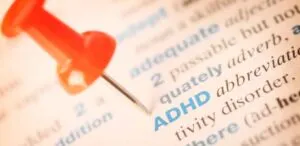Physical exercise is crucial to maintain good physical health, but it also has a positive impact on mental health. Studies have shown that individuals who engage in regular exercise have improved emotional well-being and lower rates of mental illness. In fact, exercising regularly can decrease the likelihood of developing mental health disorders and can even aid in treating conditions such as depression and anxiety. In our fast-paced world, it’s crucial to prioritize our mental health, and physical exercise can play a significant role in achieving it.
Staying active is crucial for maintaining our health and happiness, and it’s important to recognize physical activity’s impact on our brains. This blog will provide tips on how to include physical exercise in our daily routine to enhance our overall mental well-being. Let’s get started!
Importance of Physical Activity for Mental Health
Let’s dive into the amazing effects of physical activity on our brains. When we get moving, our hearts start pumping more blood, which means more oxygen and nutrients are flowing to our brains. This leads to better brain functioning and an overall boost in our mood.
Did you know that there’s a strong link between physical activity and mental health? Regular exercise can help reduce symptoms of depression and anxiety, improve our mood, and even help us handle stress better. In fact, studies have shown that exercise can be just as effective in treating depression as medication or psychotherapy. That’s right – some clinicians are even prescribing exercise for mental health!

But the benefits of exercise don’t stop there. Regular exercise can do wonders for improving concentration, and attention and offering a more optimistic perspective on life. It can even lead to changes in brain chemicals that make us feel good. Plus, exercise can help us sleep better, distract us from negative thoughts, and provide social opportunities.
Not to mention exercise is also important for our physical health. Individuals with mental health issues may be at a higher risk for chronic physical conditions so regular exercise can improve overall cardiovascular and physical health. It can even boost our self-esteem and reduce our risk of cognitive decline as we age.
So what are you waiting for? Get moving and start reaping the amazing benefits of physical activity on both your mental and physical health!
Physical Activity and Depression
It’s been scientifically proven that exercise can positively impact mental health, including depression. How, you may ask? Well, it all comes down to endorphins – those natural mood boosters that our bodies produce when we work up a sweat.
But that’s not all – physical exercise can also give us a sense of accomplishment and help us feel more in control of our lives. And the science behind it is fascinating! Exercise can increase the level of a brain-derived neurotrophic factor (BDNF) protein in the brain. Low levels of BDNF have been linked to depression and other mood disorders. By increasing the level of BDNF, physical activity can actually improve our mood and cognitive function.
Of course, incorporating physical activity into your daily routine can be tough – especially if you’re struggling with depression. But don’t worry; even starting small can make a big difference. Even just a short walk around the block can help boost your mood and energy levels.
Physical Activity and Anxiety
Have you ever felt like anxiety is holding you back from living your best life? It can be tough to deal with the persistent fear and panic that comes with this mental health disorder. But did you know that physical exercise can be a game-changer when it comes to reducing anxiety symptoms?
As we discussed earlier, our bodies release endorphins, which are natural mood boosters when we get moving. These little powerhouses trigger a positive feeling in the body that can help reduce stress and anxiety levels. And the benefits don’t stop there! Studies have shown that regular physical exercise can actually improve cognitive function and reduce anxiety levels over the long term.
The scientific explanation behind this connection is pretty cool. Exercise helps lower the levels of cortisol in our bodies – commonly known as the stress hormone. High cortisol levels are linked to anxiety and depression, so by reducing those levels, we can alleviate some of the symptoms that come with anxiety.
If you’re feeling anxious, don’t let it hold you back! Take a break and get your body moving. Whether it’s a jog around the block or a yoga class, you’ll be amazed at how much better you feel!
Physical Activity and Stress
Stress is a part of life that we can’t escape. It’s our body’s way of responding to perceived threats or danger. Although not always bad, chronic stress can lead to severe mental and physical health problems.
Did you know that exercise can even improve your memory and stress regulation? Research shows that it increases the size of the hippocampus, the part of your brain that plays a significant role in these functions. So, by exercising, you’re not only reducing your stress levels, but you’re also boosting your brainpower!

You don’t need to do intense workouts to reap the benefits of exercise. Any moderate-intensity activity can help reduce your stress levels. So, the next time you feel overwhelmed, put on your workout clothes and go for a walk. You’ll not only feel better, but you’ll also be taking a proactive step toward managing your stress levels.
Other Mental Health Benefits of Physical Activity
Physical activity not only does it improve your cognitive function, but it can also boost your self-esteem and provide social benefits. Studies have shown that regular exercise can enhance your memory, attention span, and overall cognitive function. Plus, it can even help prevent cognitive decline in older adults.
On top of that, physical exercise can improve your body image and self-confidence, leading to a happier and healthier you. And let’s not forget about the social benefits! Joining a team sport or group fitness class can provide opportunities for social interaction and help you feel connected to others, reducing feelings of loneliness and isolation. So, what are you waiting for? Get up and get moving for better mental health!
Incorporating Physical Activity into Your Life
Incorporating physical activity into our busy lives can be challenging. However, the benefits are worth the effort. Here are some important points to remember:
How Much Physical Activity Do You Need?
It’s recommended by the World Health Organization (WHO) that adults aged 18-64 aim for a minimum of 150 minutes of moderate-intensity aerobic physical activity per week or 75 minutes of vigorous-intensity aerobic physical exercise. This means you can break it down into 30-60-minute sessions of moderate-intensity activity five days a week or 20-60-minute sessions of vigorous-intensity activity three days a week.
How to get started with exercise
Here are some tips to help you create a successful exercise plan that you can stick with. First things first! Schedule a visit with your GP or an accredited exercise physiologist to ensure you’re good to go. Then, choose an activity you enjoy or have enjoyed in the past – this will help keep you motivated. Don’t forget to start small and gradually increase your activity level. Mixing up your workouts to keep things interesting is also a great idea. Writing your plan in your diary or calendar is a fantastic way to keep yourself accountable. Lastly, check in regularly and be open to trying something new if your plan isn’t working out. You got this!

Novus Beginning Psychiatry: Your Path to Health and Wellness Starts Here!
We understand that navigating the complexities of mental health can feel overwhelming, but you don’t have to face it alone. At Novus Beginning Psychiatry, we’re here to support you every step of the way. Whether you’re seeking therapy, medication, or a combination of both, our compassionate professionals are dedicated to helping you find the path to a happier, healthier life.
Our highly skilled psychiatrists are experienced in a wide range of mental health conditions, including anxiety, depression, bipolar disorder, OCD, PTSD, ADHD, autism, and more. We offer evidence-based therapies that have been proven effective in helping individuals overcome their challenges. From cognitive-behavioral therapy (CBT) to couples/family therapy, we utilize the most up-to-date techniques to empower you on your healing journey.
We also recognize that medication is vital in managing certain psychological health conditions. Our team includes Dr. Nibras, who is a board-certified psychiatrist well-versed in medication management. He works closely with you to develop a comprehensive treatment plan, as we believe in the power of personalized care.
So, take the first step towards a brighter future. Contact us today to schedule an appointment. Our friendly staff is ready to assist you in finding a convenient time to meet with our dedicated professionals. Call (832)856-4718 and let us help you take charge of your mental well-being.
Medication Management For Psychiatric Wellness
At Novus Beginning Psychiatry, we’re dedicated to helping you unlock the power of effective medication management. Our team of psychiatrists has years of experience and understands the importance of finding the right balance for your mental health journey. We offer personalized and compassionate care, creating medication plans that are tailored to your unique needs. Our understanding of psychopharmacology allows us to provide the most advanced and evidence-based treatments available.
Our goal is to help you by providing the right medications to enhance your therapy outcomes, reduce your symptoms, and improve your overall well-being. We want to be your trusted partner on the path to a brighter future. Please don’t hesitate to contact us at Novus Beginning Psychiatry to experience the transformative effects of our comprehensive medication management approach.
Who is Dr. Nibras?
Dr. Sohail Nibras is a double board-certified psychiatrist in child, adolescent, and adult psychiatry. He completed his education at Saint Louis University and the American University of Integrative Science. He excels in treatments based on psychiatric care and therapeutic sessions and has experience treating dual psychiatric and substance use disorders. He is an assistant professor at the Menninger Department of Psychiatry and Behavioral Sciences at Baylor College of Medicine in Houston, Texas. He serves as an attending psychiatrist at Texas Children’s Hospital. He trains future psychiatrists and engages in scholarly research projects.
Visit us
Come and visit us at one of our locations in person or meet us via telepsychiatry/online!
We’re here to help in Texas, ready to meet you in person. If you’re unable to make it in person, don’t worry, we’re also available online, so you can meet us easily from the comfort of your own home. Whether you prefer to see us face-to-face or connect with us online, we’re here to assist you every step of the way.
Address in Sugar Land
120 Eldridge Rd Suite D, Sugar Land, TX 77478
Address in Katy
23410 Grand Reserve Drive, Ste. 401 & 402 Katy, Texas 77494



